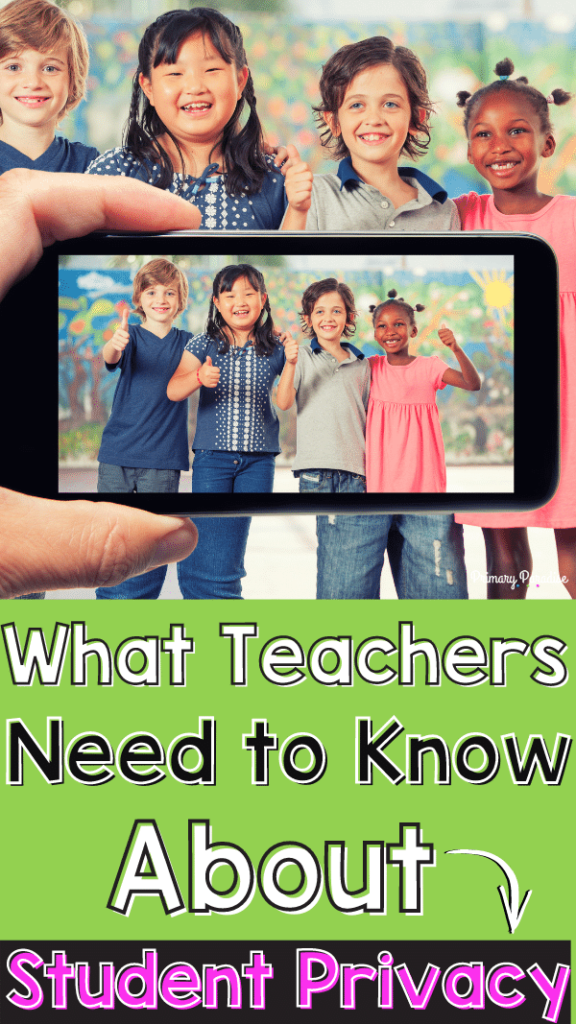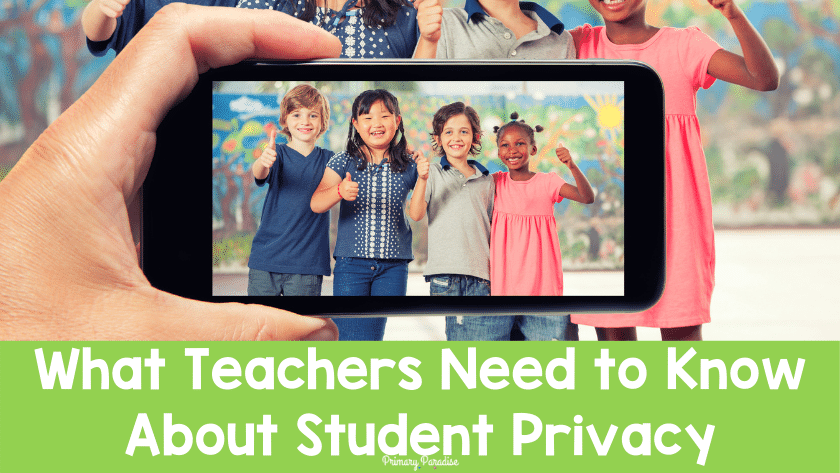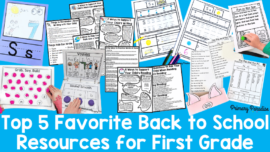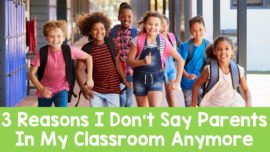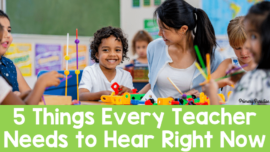Student privacy is a big deal. Before you post that adorable picture of your students working together on social media, it’s important to know some things when it comes to student privacy. Here are 3 things to keep in mind when it comes to your students’ rights to privacy.
Your Students Have Rights: FERPA, PPRA, and COPPA
FERPA
Okay, so you’ve probably heard of HIPPA, right? HIPPA, basically, is the idea that your medical records are private and your doctor has to protect your privacy and not share your medical and personal information without your permission. Well, when it comes to education, there’s something similar called FERPA. FERPA is the Family Educational Right and Privacy Act. You can read more detailed specifics of FERPA here and here, but generally, this 1974 law means a few key things.
- Educational institutions can not discloser “personally identifiable information” without written consent of the student (or from their parent if they’re a minor).
- Personally identifiable information includes “information directly related to a student and which are maintained by an educational agency or institution or by a party acting for the agency or institution”. (ie this applies to teachers)
- Photos and videos of students are considered an “education record” under FERPA. (read more here)
- Schools that fail to comply can lose federal funding.
PPRA
In addition to FERPA, there is also PPRA or the Protection of Pupil Rights Amendment. You can read about PPRA in detail here and here, but here are a few key points of the PPRA.
- You can not test or question students to reveal personal information such as political affiliations, sexual behavior, mental or psychological problems that could be embarrassing without prior consent. (In other words, parents and students are not obligated to share any of this information with you.)
- Students and parents have the right to opt out of any activities that involve collection or use of personal information with the purpose of marketing or sales. (IE if you’re creating teaching resources to share or sell).
Both FERPA and PPRA come into play when you’re collecting student information such as student work. It can get a bit complex which law comes into play in a give situation. Generally, without express prior and written consent, you can not use student information (including student work and pictures of students) for anything other than the original purpose. The original purpose of student work, for example, is for student learning and your assessment.
COPPA
We’re not quite done yet. Your students also have rights to privacy under COPPA. COPPA, or Children’s Online Privacy Protection Act, is a federal law that grants parents of children under 13 control over any personal information that is disclosed online. You can read more detailed information about COPPA here and here. Here are a few key points to keep in mind.
- Personal information includes names, photos, videos, or audio files that contain the child’s image or name collected directly from children.
- COPPA includes websites as well as social media activity and advertisements.
Since you are most likely taking any pictures and videos of students within your classroom, without a parent standing next to you saying “sure, this is fine!” COPPA could also apply to what you do with student information. So, now that you’re aware that your students have rights, what do you need to do?
Think Before You Post & Get Consent
First, this doesn’t mean you can’t share pictures and video of your students ever, but you do need to do so carefully and keep student privacy rights in mind. If you are using an app that parents opt into like Seesaw to share pictures and videos with parents, than that’s fine. Of course, only share pictures and videos of students who have consented.
If you create a class website or Facebook group to share pictures and videos with your students’ parents, be sure to get written parental consent. You need to include explicitly where and how you plan to share any student work, pictures, or videos.
Lastly, it can get very sticky if you want to share pictures and videos of your students to your public social media. This can get even stickier if you are using it to promote your business (such as a TpT shop). If you want to do this, it’s not automatically against the law. However, if you don’t do it the right away, you could get in very hot water. So, here’s what you need to do.
How to Obtain Parental Consent
- Talk to your administrators and make sure they’re 100% okay with you using pictures from your classroom on your public social media. If you don’t feel comfortable doing this, it’s a pretty good sign that you shouldn’t be sharing student pictures and work online.
- Create a consent form that explicitly lists what you want to do (take pictures and videos of student work, students etc) and where you want to share them. You need to disclose that this is a business and you will use these pictures and videos to promote your teaching resources. Again, If you don’t feel comfortable doing this, it’s a pretty good sign that you shouldn’t do this. You need parents’ written consent for this. Please note that your school’s digital/online permission form is NOT the same thing.
- If you get to this point and both your students’ parents and admin are cool, that’s great. Please still be careful to remove students’ last names and other identifiable information for their safety.
- Be careful. Truly be careful what you post about your students online. The internet is forever, and what you choose to share, even with consent, could follow students for their whole lives.
Things to Consider Even If You’re Not Sharing Pictures
Okay, so you might have gotten to this point and decided you’re just not going to share pictures and videos of your students. This is probably a good call. However, I also urge you to be careful what you write about (or IG story about) your students online. It’s not a good look when a teacher overshares about their students, especially in a way that is disparaging. For example, I’ve seen a frustrated teacher share ALL about a current student who was in crisis trashing their room. They gave the student a pseudonym, but I guarantee if that kid’s mom stumbled across it, they’d know it was about their child. I’ve seen teacher share super embarrassing stories online about a student. Again, if a parent happened upon it, the parent would probably be very upset. So, tread lightly, and be smart about any information you can share about your students. It’s incredibly important.
If you get nothing else from this, keep these three points in mind.
- Get written consent.
- Think before you post.
- Be kind and caring.
If you do those three things, you should be just fine!
You might also enjoy:
- 3 Common New Teacher Mistakes
- How to Navigate Teaching in an Instagram World
- How to Nail Your Next Classroom Observation
- Get the Most Out of Student Teaching
